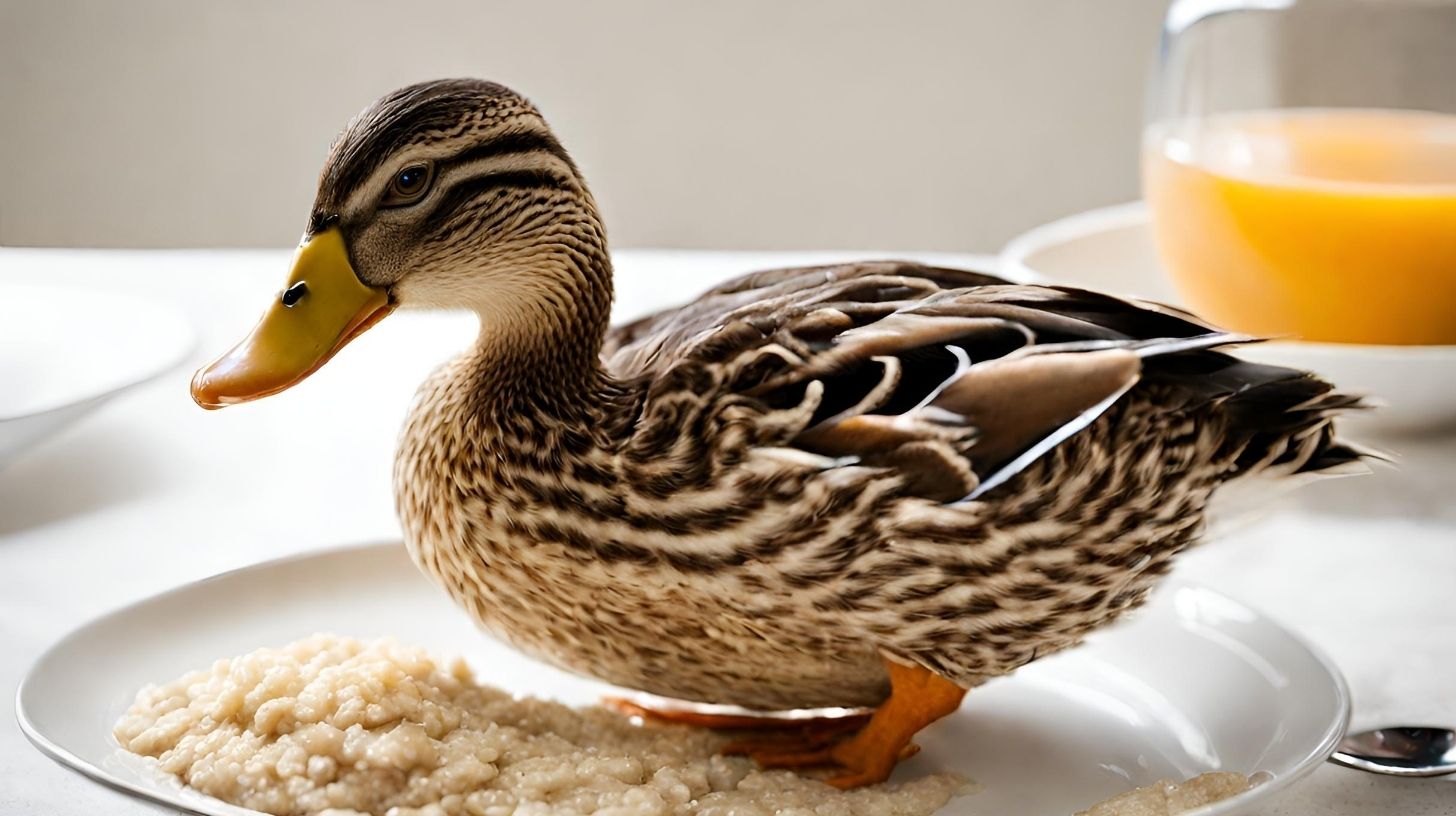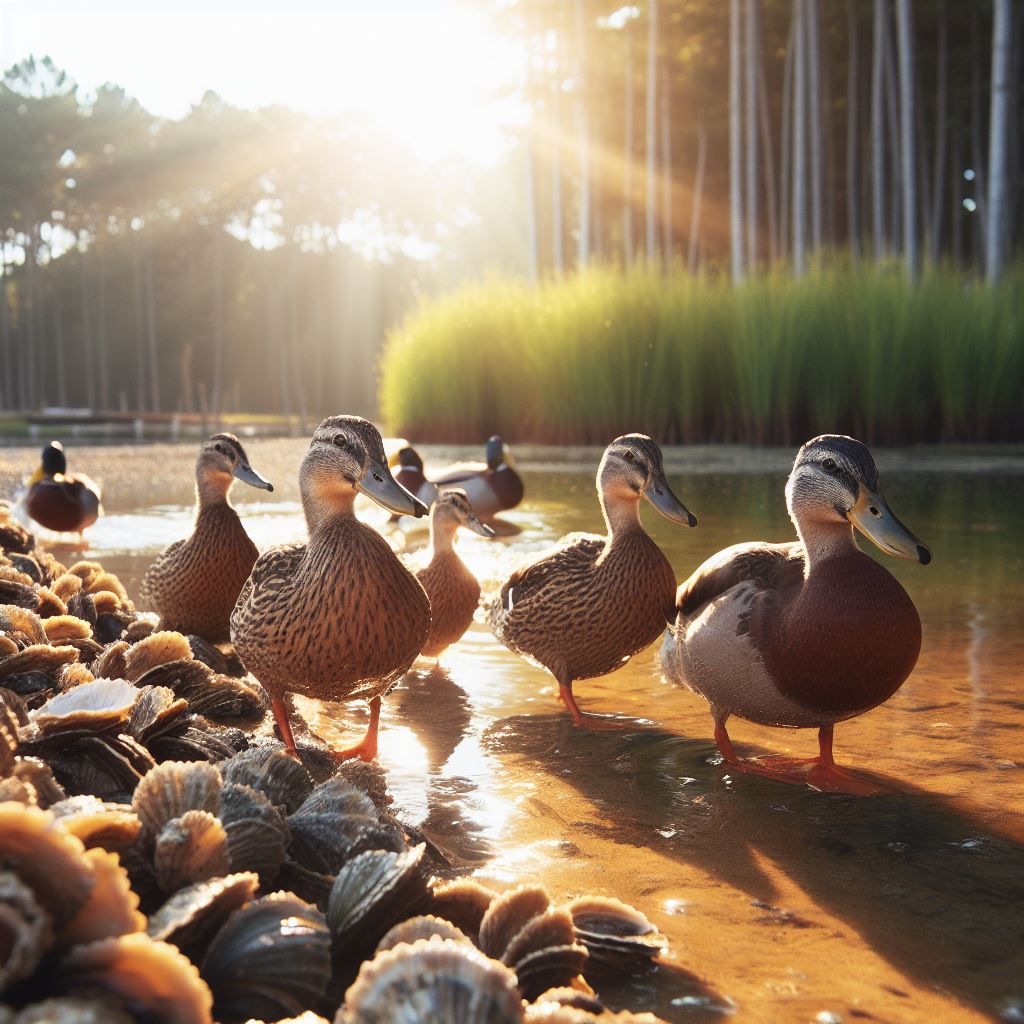Can Ducks Eat Raw Brussel Sprouts?

Table of content:
Ducks can eat a wide variety of foods that may surprise some people. We often see ducks swimming placidly on ponds, dabbling at the surface for aquatic plants and insects. However, ducks are omnivores and can eat everything from fish to fruits and vegetables. This raises the question – can ducks eat raw brussel sprouts? Are these nutritious little green balls of cabbage safe and digestible for ducks?
Brussel sprouts are bursting with vitamins, minerals, fiber and phytonutrients. They make a healthy addition to the human diet, especially when raw or lightly cooked to preserve nutrients. But what about for ducks? Can our feathered friends also benefit from these mini cabbage heads?
In this article, we’ll cover everything you need to know about feeding raw brussel sprouts to ducks. We’ll look at:
- The natural diet and digestion of domestic ducks
- Brussel sprout nutrition and digestibility
- Benefits and risks of raw vs cooked sprouts
- Feeding guidelines and recommendations
Let’s get started and find out if ducks can eat raw brussel sprouts!
A Duck’s Digestive System Determines Its Diet
Before looking specifically at brussel sprouts, it helps to understand a duck’s dietary needs and digestive system. Ducks are waterfowl that are members of the Anatidae family, alongside geese and swans. Mallards are one of the most common domestic duck species.
In the wild, mallards have varied diets consisting of:
- Aquatic plants
- Algae
- Grasses
- Seeds
- Insects
- Snails
- Worms
- Fish
- Amphibians
Their diverse diet enables them to find nourishment in wetlands, marshes, ponds and other waterways.
Domestic ducks retain this varied omnivorous appetite. When living on farms or homesteads, ducks will graze on grasses, swim for aquatic plants and insects, and scavenge for seeds, earthworms and more.
A duck’s digestive system is designed to process this diverse diet. Ducks have muscular gizzards filled with grit to grind up fibrous plant materials. Their intestinal tracts are shorter than chicken’s, but longer than mammal carnivores. This gives them the ability to digest and extract nutrients from an omnivorous diet of plants and animals.
Brussel Sprouts Offer Vitamins, Minerals and Phytonutrients
Now that we know something about a duck’s natural diet, let’s see how brussel sprouts fit in.
Brussel sprouts are a member of the Brassicaceae family of vegetables along with broccoli, cabbage, kale and cauliflower. They grow as mini cabbages on thick stalks sprouting from the plant stem.
Each brussel sprout is packed with beneficial nutrients including:
- Vitamin K – important for blood clotting
- Vitamin C – supports immune health
- Folate – crucial for DNA synthesis
- Manganese – bone and enzyme production
- Fiber – digestive and cardiovascular health
- Potassium – fluid balance and nerve transmission
- Vitamin B6 – metabolism and red blood cell production
- Phosphorus – tissue and cell repair
- Vitamin B1 – carbohydrate metabolism
- Iron – oxygen transport in blood
- Copper – collagen production
Brussel sprouts also contain cancer-fighting glucosinolates and sulforaphane. Other phytonutrients act as antioxidants to reduce inflammation.
In humans, raw brussel sprouts contain higher levels of vitamin C, iron, potassium and folate than cooked sprouts. Light cooking does help break down fibrous cell walls and can improve digestibility however.
So brussel sprouts are packed with valuable vitamins, minerals and compounds. But can ducks digest them and utilize all these nutrients?
Factors Affecting Brussel Sprout Digestibility for Ducks
Brussel sprouts offer concentrated nutrition in compact little spheres. But there are some factors to consider regarding digestibility for ducks.
Gastrointestinal Effects
Some people experience bloating or gas after eating brussel sprouts. The high fiber content can cause similar gastrointestinal effects in ducks if fed too much.
Thyroid Function
Brussel sprouts contain goitrogens which can disrupt thyroid function by interfering with iodine uptake. The thyroid regulates metabolism in ducks just like humans. Eating large amounts of raw brussel sprouts regularly could potentially impact thyroid health.
Effect on Egg Production
Infertility and reduced egg production could occur if ducks consume very high quantities of raw brussel sprouts for prolonged periods. This is likely due to the goitrogens interfering with reproductive hormones.
Toxicity
Raw brussel sprouts contain chemicals called thiocyanates. In very large quantities, these compounds can be toxic. However, ducks would need to eat huge amounts of raw brussels sprouts to reach toxic levels.
So in moderation, raw brussel sprouts appear safe for ducks to eat. Next, let’s look at whether raw or cooked sprouts are best.
Raw vs Cooked Sprouts for Ducks
Cooking brussel sprouts reduces their natural enzymes and certain heat-sensitive vitamins. However, cooking makes the cell walls more permeable and may improve bioavailability and digestibility for ducks.
Here’s an overview of raw vs cooked brussel sprouts for ducks:
Nutrition Differences
- Raw sprouts contain more vitamin C, B1, B5, B6, and folate than cooked. Vitamin C in particular degrades rapidly with cooking.
- However, one study found ducks absorbed more minerals like phosphorus, magnesium, and zinc from cooked brussel sprouts than raw.
- Raw sprouts have higher levels of cancer-fighting glucosinolates. Light steaming retains more glucosinolates than other cooking methods.
- Cooking increases the bioavailability of certain antioxidants like ferulic acid in brussel sprouts.
Digestibility
- Cell walls in raw sprouts are tough and fibrous. Cooking softens cell walls, making nutrients more accessible.
- However, excess cooking can damage the cell structure. Light steaming or sautéing retains some crunch for easier chewing and digestion.
- Raw sprouts have more natural enzymes like myrosinase. This enzyme converts glucosinolates into active compounds like sulforaphane.
- Light cooking deactivates myrosinase but preserves some beneficial glucosinolates. Overcooking destroys them.
So both raw and cooked brussel sprouts have advantages and disadvantages. Combining raw and lightly cooked sprouts offers a balanced approach.
Feeding Guidelines for Ducks
Brussel sprouts can make a beneficial addition your duck’s diet in moderation. Here are some tips for feeding brussel sprouts:
- Start with small portions as ducks adjust to the new food. Chop raw sprouts into bite-size pieces for easier eating.
- Mix brussel sprouts with the duck’s normal feed. Combining sprouts with grains and greens helps balance nutrition.
- Introduce brussel sprouts slowly over 2-3 weeks. Watch for changes in egg production or digestive issues as you increase portions.
- Feed no more than one quarter to one third of the duck’s diet as brussel sprouts. Feed a variety of other fruits, greens, vegetables, insects and grains as well.
- Rotate between raw, lightly steamed, and sautéed brussel sprouts for a balance of nutrients.
- Remove any uneaten sprouts within a few hours to prevent spoilage.
Following these tips will help your ducks safely enjoy the nutrition from brussel sprouts.
Feeding Raw Brussel Sprouts to Ducks
Brussel sprouts are packed with vitamins, minerals, fiber and phytonutrients that can benefit duck health. Ducks appear able to digest raw and cooked brussel sprouts well in moderate portions. Their gastrointestinal tract is designed to break down fibrous vegetables.
Feeding a mixture of raw and lightly cooked brussel sprouts offers a balance of nutrition. Raw sprouts provide more heat-sensitive vitamins and enzymes. Light cooking increases the bioavailability of some minerals and phytonutrients.
In conclusion, fresh raw brussel sprouts can make a nutritious supplemental treat for ducks. Feed no more than one quarter sprouts as part of a diverse diet for optimum health. Start with small portions and monitor your duck’s digestion and egg production. Following these tips, brussel sprouts can be a safe, healthy addition to your duck’s meals.
Welcome. I’m Adreena Shanum, the proud owner of this website, and I am incredibly passionate about animals, especially poultry. I founded adreenapets.com as a labor of love, stemming from my desire to share my knowledge and experiences with poultry enthusiasts worldwide.




